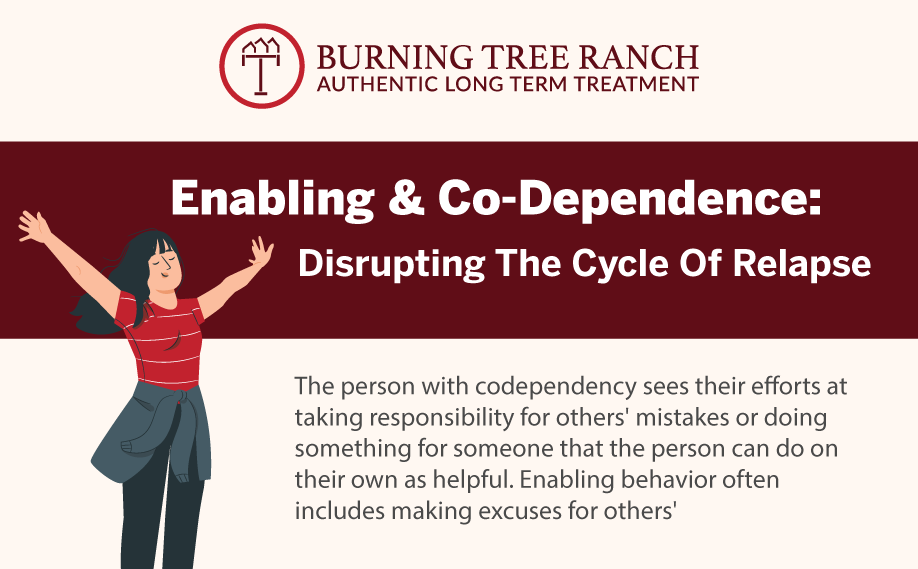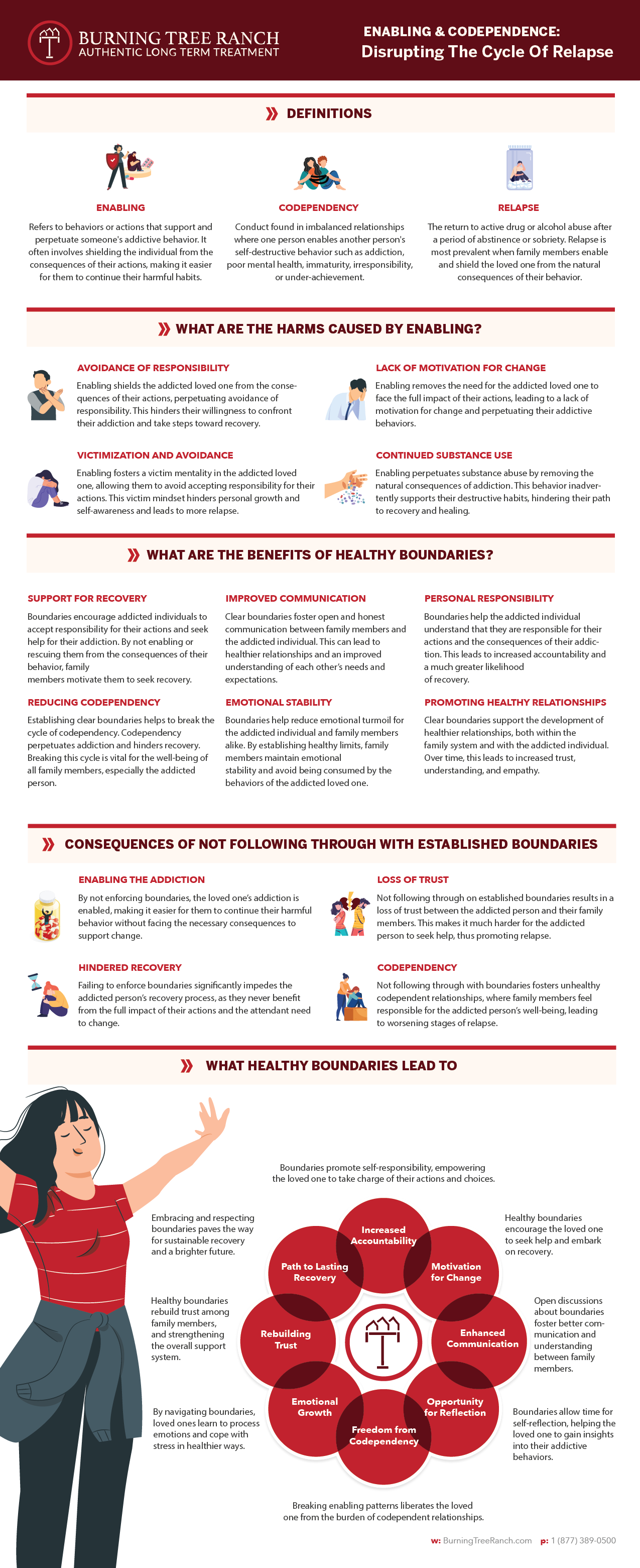The Importance of Accountability for the Chronic Relapser
Why is Accountability Important?
Accountability: an obligation or willingness to accept responsibility or to account for one’s actions.
One of the key differentiators between Burning Tree Ranch and other treatment centers is our core focus on the importance of accountability.
Accountability is the glue that ties commitment to the results
More About Burning Tree Ranch
Burning Tree Ranch is a highly sophisticated, long-term residential treatment center located outside of Dallas, TX, on a beautiful, 3,000-acre ranch. The program incorporates an advanced clinical curriculum that relies on evidence-based practices, addiction psychiatry, and 12 Step participation.

Why is Accountability Important?
By the time a client arrives at Burning Tree Ranch to receive help, they have broken relationships, failed attempts at sobriety, and multiple other consequences associated with their addiction. They have not been able to stay sober despite multiple previous treatment opportunities. Likewise, the family has been through the myriad ups and downs associated with their loved one’s unending cycle of relapse. The revolving feelings of guilt, shame, fear, and anger linger like a wet blanket. Put simply, the recovery process has not worked for them. For some, hopelessness has set in. The staff at Burning Tree Ranch understand this.
Living a Life of Excellence Beyond Sobriety
Accountability and structure are two of the key ingredients necessary for a complete and total change in our client’s outlook on life. At Burning Tree Ranch, we hold our clients accountable for the actions and beliefs that no longer serve their needs.
Fortunately, because we are an authentic long-term treatment center, we get to know our client’s true behaviors in an intimate, first-hand setting. Dedicated to helping every client create a life of excellence beyond sobriety, we address each behavior consistently and purposefully, as they arise.
With an accountable and structured environment, our clients absorb new life skills while becoming fully immersed in the 12-step process. Underpinning this structure are a host of clinically supportive interventions that include Dialectical Behavioral Therapy, Cognitive Behavior Therapy, EMDR, Neurofeedback, Equine Therapy, Addiction Psychiatry, and Individual and Group Therapy sessions.
As our clients begin to trust the process, become vulnerable, and take risks with the clinical support of our faculty, we delve deeper and deeper into the story of what has been blocking them from a life of excellence beyond sobriety.
Being Honest Through Action
Learn more about enabling & dependency
Our Chronic relapse therapies
Burning Tree Ranch utilizes
addiction medicine to aid in the diagnosis, treatment and recovery of persons with the disease of addiction.
A form of goal-oriented therapy that helps our clients understand how their thoughts affect their actions, leading to healthier thinking patterns and behaviors.
An evidence-based psychotherapy approach that helps our clients better manage stress, regulate emotions, and improve relationships with others.
An interactive psychotherapy
technique that helps our clients reduce the emotional distress caused by the unresolved pain associated with trauma.
An experiential therapy that imparts physical, cognitive, and emotional benefit to our clients as they engage the important work of establishing lifelong recovery.
A form of positive psychotherapy that helps our clients clarify their values and connect with their authentic selves, leading to a greater sense of self-worth and empowerment.
A humanistic form of psychotherapy that helps our clients concentrate on the present moment, and engage the
opportunity to they have increase
personal freedom and fulfillment.
Facilitated by a licensed clinician, group therapy helps our clients develop improved communication skills, boundaries, and self-awareness in a therapeutic setting.
We take into account the whole
person, not just the addiction. Our holistic approach enables our clients to discovery well-being for the mind, body, and spirit.
The goal of individual therapy is to motivate the client to explore certain behaviors that may interfere with, delay, or sabotage the opportunity to achieve permanent, lifelong recovery.
A form of psychotherapy that helps our clients re-build relationships with loved ones, and establish new relationships with a healthy support group of peers.
Neurofeedback Therapy is a noninvasive treatment designed to instruct patients as to how to control brainwave activity in order to change behaviors.
The Twelve Steps teach our clients how to live by a set of spiritual principles that are taught in the Big Book of Alcoholics Anonymous.


